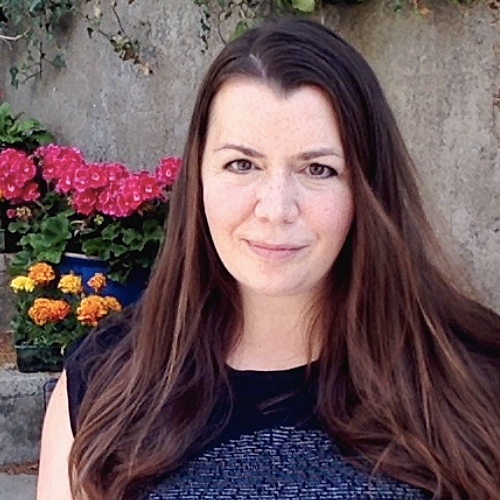
Weaning: Supporting Families Stopping Lactation and/or Ending Their Breastfeeding/Chestfeeding Relationship

Joy MacTavish, MA, IBCLC, RLC is an International Board Certified Lactation Consultant and certified Holistic Sleep Coach focusing on the intersections of infant feeding, sleep, and family well-being. Through her business, Sound Beginnings, she provides compassionate and evidence-based support to families in the greater Seattle area, and virtually everywhere else. She entered the perinatal field in 2007 as birth and postpartum doula, and childbirth and parenting educator. Joy holds a Master of Arts in Cultural Studies, graduate certificate in Gender, Women and Sexuality Studies, and two Bachelors degrees from the University of Washington. She enjoys combining her academic background, analytical skills, and passion for social justice into her personal and professional endeavors. Joy serves as an Advisory Committee Member and guest speaker for the GOLD Lactation Academy. When not working or learning, she can be found homeschooling, building LEGO with her children, or dreaming up her next big adventure.
Topic: Full-Term Breastfeeding/Chestfeeding: Benefits, Considerations, and Ways to Offer Support - [View Abstract]
Topic: Mindful Breastfeeding: How Lactation Professionals Can Support Calm and Connection - [View Abstract]
Topic: Sending Reports: What’s in it for IBCLCs? - [View Abstract]
Topic: Supporting Clients Facing Fertility Treatment - [View Abstract]
Topic: The Intersection Between Lactation, Sleep, and Family Well-Being - [View Abstract]
Topic: Weaning: Supporting Families Stopping Lactation and/or Ending Their Breastfeeding/Chestfeeding Relationship - [View Abstract]
While lactation support spans the time from the prenatal period through weaning, there is less available information about the process of weaning. We know that there are a variety of reasons why families need or desire to stop lactation. We also know that there are emotions and logistics involved in ending a breastfeeding/chestfeeding relationship. Depending on the goals, timeline, and individual context of each dyad there are a variety of factors that need to be considered by the family. Unfortunately, these families often feel that the clinical information and emotional support available for weaning is lacking.
Evidence-based support presented in a compassionate manner can make a world of difference to the individual's decision-making process and overall weaning experience. For lactation supporters and professionals, being able to support families who are stopping lactation and/or ending their breastfeeding/chestfeeding relationship is a vital skill. This presentation will offer research-based information about the reasons for weaning, steps lactation supporters and professionals can take when working with families, and scripts for compassionate phrasing while offering this important information and support.

View Details / Enroll

View Details / Enroll

We’re Human, Too: Hidden Dynamics in Our Communication with Clients

Cynthia Good, MS Clinical Psychology, is an International Board Certified Lactation Consultant, Clinical Counselor, author, consultant, and internationally recognized speaker. She is the Director of LifeCircle Consulting, LLC and is Certified in Acute Traumatic Stress Management. She is based in the Seattle, Washington, USA area, where she formerly served as an Adjunct Professor in the Department of Midwifery at Bastyr University where she taught counseling skills and is a therapist at Sandbox Therapy Group where she works with children, adults, and families. Cynthia has a strong interest in the emerging field of lactational psychology. She brings the evidence and insights of psychology and lactation consulting to her presentations, providing information and teaching skills that are essential to understanding and effectively responding to the complex psychosocial realities of families living in diverse contexts. The focus of her presentations includes communication skills and counseling techniques for perinatal care providers; equity, diversity, and inclusion; infant feeding rhetoric; perinatal mental health; perinatal loss, grief, and trauma; ethics; serving as an expert witness in lactation-related court cases; cultural competence and humility; vitamin D; and more.
Topic: Cultural Competence or Cultural Humility? A Roadmap for Lactation Specialists - [View Abstract]
Topic: Heartbroken: Loss and Grief in the Perinatal Time Period - [View Abstract]
Topic: It Wasn’t Supposed to be Like This: Traumatic Birth, Traumatic Stress, and Breastfeeding - [View Abstract]
Topic: My Brain is Doing What? Bias, Ethics, and the Lactation Specialist - [View Abstract]
Topic: Perinatal Mental Health Screening: A Primer for Lactation Specialists - [View Abstract]
Topic: The IBCLC as Expert Witness: Role, Strategies, and Resources - [View Abstract]
Topic: The Rug Pulled Out from Underneath Me: Depression During Pregnancy and After Birth - [View Abstract]
Topic: Unpacking the Invisible Diaper Bag of White Privilege: An Overview of Racial Inequities in Breastfeeding Support - [View Abstract]
Topic: We’re Human, Too: Hidden Dynamics in Our Communication with Clients - [View Abstract]
On the best of days, providing quality lactation care to families in the perinatal time period is a challenging endeavor. IBCLCs, for example, are mandated to effectively utilize history taking and assessment skills, a broad collection of skills to assist the dyad, general problem-solving skills, skills related to techniques and devices, and skills needed to develop, implement and evaluate an individualized feeding plan in consultation with the client. Communication skills are the bedrock of everything a lactation supporter must do. Our training in this area logically tends to focus on understanding and responding to the human context of the dyad. However, there are two sides to communication in a lactation-related encounter: the client and the care provider. And, care providers are also human. In spite of our compassion and good intentions, we are impacted by the stresses, losses, and traumas of life, which can then impact our ability to work well with our clients. This presentation addresses common challenges in the lactation supporter’s own context (such as cognitive load, burnout, and traumatic triggers), their impact on communication, and strategies that can help us improve our ability to communicate effectively with our clients.

View Details / Enroll

What a Letdown: Exploring the Physiology of the Milk Ejection Reflex

Briana Tillman received her undergraduate degree in International Relations from the United States Military Academy at West Point. She has been a La Leche League Leader for 9 years and is a board certified lactation consultant. After spending 10 years as a stay-at-home mom, she is currently in her third year of medical school at Rocky Vista University College of Osteopathic Medicine in Parker, Colorado. She loves spending time with her husband and three kids—as a family they like to travel, go camping, and play string instruments in “family ensemble.”
Nick is a 3rd year medical student at Rocky Vista University College of Osteopathic Medicine. He has a background in mechanical and systems engineering but found his calling in medicine after volunteering for Health4Haiti in 2011. He lives in Colorado with his wife and they enjoy hiking, camping and fishing in the great outdoors.
Topic: What a Letdown: Exploring the Physiology of the Milk Ejection Reflex - [View Abstract]
New mothers experience the milk ejection reflex, or “letdown,” in various ways. While some feel no physical symptoms, others experience a tingling sensation and some even have significant pain or sadness. Babies also have different experiences, from the overactive “drink from the firehose” to frustratingly long waiting at feeding time. This presentation explores the multitude of influences on letdown, from internal hormones and chemical signaling pathways to the research related to such external influences as diet, alcohol, stress, and the use of synthetic oxytocin.
Many moms believe that they either do not produce sufficient milk or need a quicker, more effective letdown. Suggestions to deal with these issues range from drinking beer to adding different nutritional supplements to the diet, from hypnosis to oxytocin nasal spray. We will explore the research and unravel the best practices and recommendations we can give to clients related to their concerns about the milk ejection reflex.

View Details / Enroll

View Details / Enroll
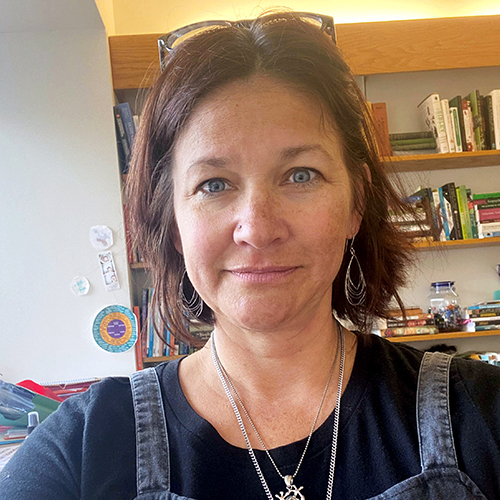

Dr. Patty Born is an associate professor of environmental education at Hamline University in St Paul, MN. She has worked for over three decades in different educational settings, including museums, nature centers, zoos, parks, and traditional classrooms. As a scholar-activist, she is concerned with helping teachers-to-be develop an accurate and informed understanding of issues related to climate, environment and sustainability, as well as helping them engage with important questions about our connections to other species. Patty's research interests are related to human-animal relations, wildlife experiences and their impact on teacher self-efficacy, and nature-based education. Dr. Patty Born is an associate professor of environmental education at Hamline University in St Paul, MN. She has worked for over three decades in different educational settings, including museums, nature centers, zoos, parks, and traditional classrooms. As a scholar-activist, she is concerned with helping teachers-to-be develop an accurate and informed understanding of issues related to climate, environment and sustainability, as well as helping them engage with important questions about our connections to other species. Patty's research interests are related to human-animal relations, wildlife experiences and their impact on teacher self-efficacy, and nature-based education.
Relationships with animals are deeply significant for children but are often overlooked by the adults in their lives. Why are animals so captivating for children of all ages? Dr. Born will share an overview of how animals impact children’s cognitive, social-emotional, and inter/intra-personal development and growth. Animal interactions can decrease anxiety, provoke higher-order thinking, improve social relationships and have been shown to have therapeutic and physiological benefits as well. Dr. Born will also describe ways that adults can be supportive of child-animal relationships with information about health and wellness(for children and animals!), safety, caregiving, and ways to foster healthy, meaningful relationships with companion and wild animals.
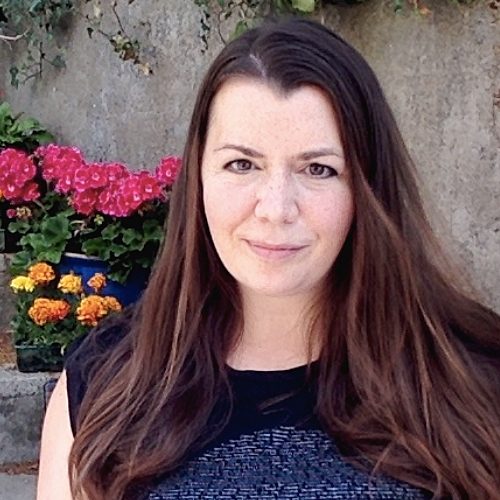

Professor Amy Brown is based in the Department of Public Health, Policy and Social Sciences at Swansea University in the UK. With a background in psychology, she has spent the last thirteen years exploring psychological, cultural and societal influences upon infant feeding decisions in the first year. Her research seeks to understand how we can shift our perception of how babies are fed away from an individual mothering issue to a wider public health problem – with societal level solutions. Dr Brown has published over 60 papers exploring the barriers women face in feeding their baby during the first year. She is a mother to three human children and three book babies: Breastfeeding Uncovered: Who really decides how we feed our babies, Why starting solids matters, and The Positive Breastfeeding Book: Everything you need to feed your baby with confidence. She is a regular blogger, aiming to change the way we think about breastfeeding, mothering and caring for our babies.
Topic: Breastfeeding Trauma: How Can We Recognise and Support Mothers Who Wanted to Breastfeed but Were Unable to Meet Their Goals? - [View Abstract]
Topic: How Can We Better Support Mothers Don’t Meet Their Breastfeeding Goals? - [View Abstract]
Topic: What Do Normal Infant Feeding Patterns Really Look Like? - [View Abstract]
We know that responsive feeding gets breastfeeding off to the best start. New parents are told that breastfed babies often feed 8 – 12 times a day, but in practice many new mothers will find themselves breastfeeding more frequently than this. Research exploring breastfeeding frequency is however conducted primarily with younger infants, focuses simply on breast versus bottle, or was funded by industry.
This presentation reports novel findings from a research study of 18,000+ mothers with a baby or child aged 0 – 5 years old. It examines how often babies feed during the day and night for each age range by milk feeding type, mode, and approach (e.g. schedule versus responsive) and how frequent day and night feedings remain the norm for breastfed babies into the preschool years. The data also explores differences in maternal perceptions of infant variations in hunger e.g. in response to growth spurts, variations over different days, and cluster feeding, highlighting how breastfeeding mothers describe a more varied pattern of infant feeding compared to those formula feeding.
Together the findings challenge notions that most babies breastfeed between 8 – 12 times per 24 hour and that irregular patterns or varied numbers of feeds are normal for breastfed infants. Although many breastfeeding practitioners will recognise this pattern, these findings will provide both an addition and challenge to the scarce existing research literature on infant feeding patterns.

View Details / Enroll

What Role Do Fathers’ Cultural Experiences Play in the Decision to Support Breastfeeding?

Muswamba Mwamba is a father of five breastfed children. An International Board-Certified Lactation Consultant, a public health practitioner, and a scholar; his research interests focus on immigrant health within the minority group in the context of the US health disparity. Muswamba helps mothers and babies obtain the best health outcomes by teaching and inspiring their partner/ father to fight to remove barriers that prevent successful breastfeeding. As a professor at the University of North Texas at Dallas, Muswamba disseminates clinical and non-clinical information to inform graduate students of significant developments and trends in the field of infant feeding.
Muswamba is a lifelong learner. He trained in Belgium, where he earned a bachelor's degree in agricultural engineering, a master's degree in human nutrition biochemistry, and a second master's degree in food science and technology. Witnessing striking disparity in his maternal and child health practice, he deepened his understanding of public health's complexity in the US and elsewhere. He earned a master's degree in Public Health at the University of North Texas and a doctoral degree in Public Health Executive Leadership from the University of North Carolina at Chapel Hill.
Male breastfeeding support is evidenced to influence breastfeeding behaviors. Fathers play a vital role in determining women's choice to breastfeed. Many studies regarding fathers' breastfeeding influence included participants from a variety of ethnic backgrounds. Only a few studies examined African American men's breastfeeding attitudes. Within the U.S. disparity context, Black African immigrant breastfeeding experiences have not been measured.
The social and cultural breastfeeding experiences of Congolese Immigrants compared to those of African Americans were explored, analyzed, and contrasted. In the immigrant study, the breastfeeding cultural practice's visibility enables the breastfeeding perceptions of Congolese fathers. They identify their Congolese origin as a warrant for breastfeeding decisions and practice. Breastfeeding is a natural process that does not require prior deliberations between expectant couples. Breastmilk is valued for its God-given virtues rather than its medical benefits.
In the cultural context of African American, family, and friends enable breastfeeding support perceptions. Personal experiences and knowledge of breastfeeding benefits are predictors of breastfeeding decisions. However, there is not a cultural, existential framework supporting breastfeeding.
This study's findings and recommendations guided the development of a dynamic African American men breastfeeding support toolkit designed to utilize existing public health structures.

View Details / Enroll

View Details / Enroll

What to Do When the Laid-Back Breastfeeding Position Doesn’t Work…Self Attachment, the Flipple Technique and the Koala Hold All With a “Hands Off” Approach

Meg is the mother of three breastfed boys and lives with her husband and children in QLD, Australia. She is an International Board Certified Lactation Consultant (IBCLC) in private practice and works with parents to help them reach their breastfeeding goals. She has a degree in psychology and her prior work was is in counselling and sexual health. She was a La Leche League Leader (breastfeeding counsellor) for seven years before becoming an IBCLC. Meg is the author of two books including, "Boobin' All Day...Boobin' All Night. A Gentle Approach To Sleep For Breastfeeding Families". She has published articles in numerous parenting magazines and websites. She was also filmed for a short documentary, "Lactaboobiephobia", based on one of her blog posts which was released in 2016.
Topic: Breastfeeding With A Tongue Tie. How Can We Help When A Tie Revision Is Not Possible? - [View Abstract]
Topic: Exclusively Breastfeeding Triplets-Case Studies - [View Abstract]
Topic: Social Media Backlash – Addressing Emotionally Charged Responses - [View Abstract]
Topic: What to Do When the Laid-Back Breastfeeding Position Doesn’t Work…Self Attachment, the Flipple Technique and the Koala Hold All With a “Hands Off” Approach - [View Abstract]
As Lactation professionals we are taught and often reminded of the “laid back breastfeeding position” or “biological nursing” and how this can best facilitate a great latch. While this can be very useful and helpful in most cases, there will be circumstances where this position does not lead to a better latch and leaves the professional, the mother and the baby continuing to struggle.
This presentation will explain other useful and practical tips on how to help facilitate a baby to get the best latch possible, why the “look” of the latch does not matter, all while empowering the mother and baby to do it themselves, without physical help from the professional. The techniques covered include self-attachment in the side-lying position, self-attachment in the koala hold and trying the flipple technique to get as much breast tissue into the baby’s mouth as possible. This can be helpful for all babies struggling with latch including babies with tongue and/or lip ties. This presentation will include video examples and practical tips.

View Details / Enroll

View Details / Enroll
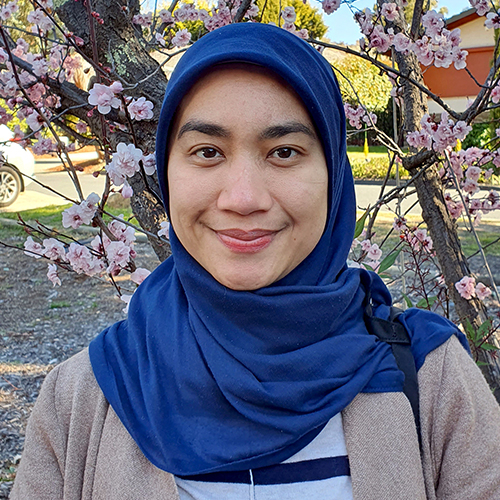
What’s New With Ten Steps to Successful Breastfeeding: Updates and Its Cost/Benefit Implications

Andini has bachelor and master degree in public health, majoring in hospital administration. She is an IBCLC and is currently undertaking PhD at the Australian National University. Her PhD thesis is looking at the facilitator and barrier of Baby Friendly Hospital Initiative implementation and accreditation in Indonesia and Australia. One part of her PhD was measuring its social value using Social Return on Investment.
Her journey began when she was pregnant with her first child, then found and attended full series of Indonesian Breastfeeding Mothers Association (AIMI)'s breastfeeding classes. She then decided to volunteered as breastfeeding counselor at AIMI.
With her work experience in hospital management consulting for 8 years and personal experience when her breastfed son undertook open heart surgery, she realized that not every hospitals provide adequate education and support for breastfeeding mother, either since pregnancy, during and after birth.
Andini was awarded Deeble Summer Research Scholarship from Deeble Institute for Health Policy Research Scholarship Program of Australian Healthcare and Hospitals Association (AHHA) in 2020 and published a Health Policy Issues Brief titled "Improving the Uptake of the Baby Friendly Health Initiative in Australian Hospitals" as the outcome. Thanks to her supervisor, Andini involved in working group for Breastfeeding Friendly Workplace Accreditation at ANU in 2018-2019 and involve in WBTi Australia since 2019. Currently living in Canberra Australia, Andini has been providing breastfeeding education and assistance for Indonesian mother-student, students' wives or any Indonesian women who live in Canberra.
In 2018, the World Health Organization (WHO) issued the first revision of the 1989 WHO/UNICEF Ten Steps to Successful Breastfeeding. Revisions are subtle, yet meaningful for implementation. A major change made by WHO is subdividing the Ten Steps into 1) critical management procedures, and 2) key clinical practices. Lessons have been learned on how the change has shifted the focus from health care staff to parents and families and shifted the responsibility for some elements of care from hospitals to the community. In this presentation, we will compare 1989 and 2018 Ten Steps, and explore its cost and benefit implications for diverse stakeholders, such as healthcare professionals, parents, family and government.
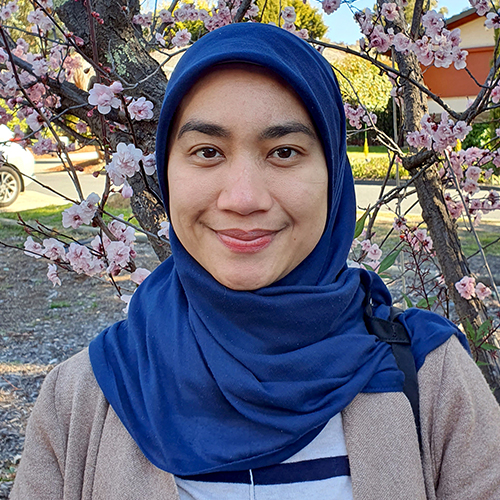
View Details / Enroll

What’s New With the International Code on the Marketing of Breast Milk Substitutes: It’s Not Just About Formula!

A Canadian living in France for more than 25 years, Juanita discovered breastfeeding with her three children and has never looked back.
She became a La Leche League Leader in 1997, and served on the boards of LLL France 2004-2008 and LLL Europe 2011-2018. She has been the regional representative of LLL Europe to WABA since 2007. Juanita became a lactation consultant in 2003 (IBCLC), recertifying in 2008 and 2013.
Juanita was the coordinator for the Journée Internationale de l’Allaitement (‘JIA’ – International Breastfeeding Conference for health professionals organized by LLL France) in 2003 and 2008. She helped create and implement the Peer Counsellor Programme in France (Programme relais allaitement- Prall).
The WHO Code is one of her passions! She has spoken on the Code at conferences around the world. Member of the Coordination française pour l’allaitement maternel (CoFam) since 2007, she was head of the Task Force on the Code and ethical questions. As a member of IBFAN *and GIFA, she was given the opportunity to participate in international meetings of the Codex Alimentarius and the OECD in Paris, as well as in week-long IBFAN conferences in Montecatini, Italy in 2007, and in Geneva in 2008. She also attended the Committee on the Convention on Rights of the Child in Geneva for IBFAN and helped prepare a country report on France underlining the importance of breastfeeding and the need to apply the Code (2009). She is an active member of IBFAN’s Global Working Group on Contaminants in Breastmilk. In 2018, she represented LLLI at the second NetCode meeting in Geneva.
The International Code on the Marketing of breast milk substitutes is the very cornerstone of breastfeeding protection, promotion and support, and an integral part of infant and young feeding policies around the world; yet it is often misunderstood or considered to be an out of date document with little relevance to breastfeeding issues today. Nothing could be further from the truth. The Code is updated regularly with additional resolutions voted at World Health Assemblies every two years, and covers far more than the marketing of breast milk substitutes in the first six months of life, but promotes optimal nutrition practices up to 36 months, and addresses conflict of interest with infant food companies. Indeed, the rapidly growing global market of breast milk substitutes, estimated at more than $70 billion in 2019, continues to undermine breastfeeding through its evermore aggressive and omnipresent marketing techniques, focused on parents, health professionals and health systems. The stakes are high – understanding and implementing the Code is an essential step towards ensuring optimal nutrition for infants and young children, whether breastfed or formula-fed.

View Details / Enroll


Liz Brooks is a private practice International Board Certified Lactation Consultant (IBCLC) and licensed lawyer, with expertise in criminal, administrative, non-profit, ethics, and lactation-related law. Liz offers in-home lactation consultations, and bedside care and teaching in two Baby-Friendly-designated hospitals.
She has been a leader in organizations for IBCLCs, breastfeeding promotion, and non-profit human milk banking. She authored the only textbook on legal and ethical issues for the IBCLC, and writes on health care ethics, equity, and conflict-of-interest in several books, blogs, and peer-reviewed journals.
She is a popular international conference speaker, offering practical tips with wit and wisdom for anyone who works with lactating and human milk-using families. Liz self-identifies as a cisgender hetero white woman with unearned privilege, and uses she/her/hers pronouns.
Topic: Using a Cool Head When You’re on the Hot Seat: Ethical and Legal Topics That Make Us Sweat, and How to Avoid Getting Burned - [View Abstract]
Topic: What’s Too “Friendly” for an IBCLC on Social Media? - [View Abstract]
Topic: Whiners and Deniers: Ethics and Diplomacy in Difficult Cases - [View Abstract]
It's all about the Internet! Families in 2015 want to be connected to their network of families and friends. They use Internet-accessing devices and social media to share news, gather information and seek opinions. If this is where families are ... can an IBCLC (or other healthcare provider) be there, too, without violating long-standing principles of privacy and professional ethics? Can healthcare providers engage in clinical discussion with someone on Facebook, Twitter, a chat room or a website? What about real-time webinars, or static websites, where mothers type in their clinical questions? Is texting ever permissible? Can a clinician post a picture of a client, or ask colleagues on a private listserv about a tricky case? We'll learn how the Internet is used by new families to seek and share information, and the professional risks of "friendly" clinical care by the IBCLC or HCP who joins the conversation.






